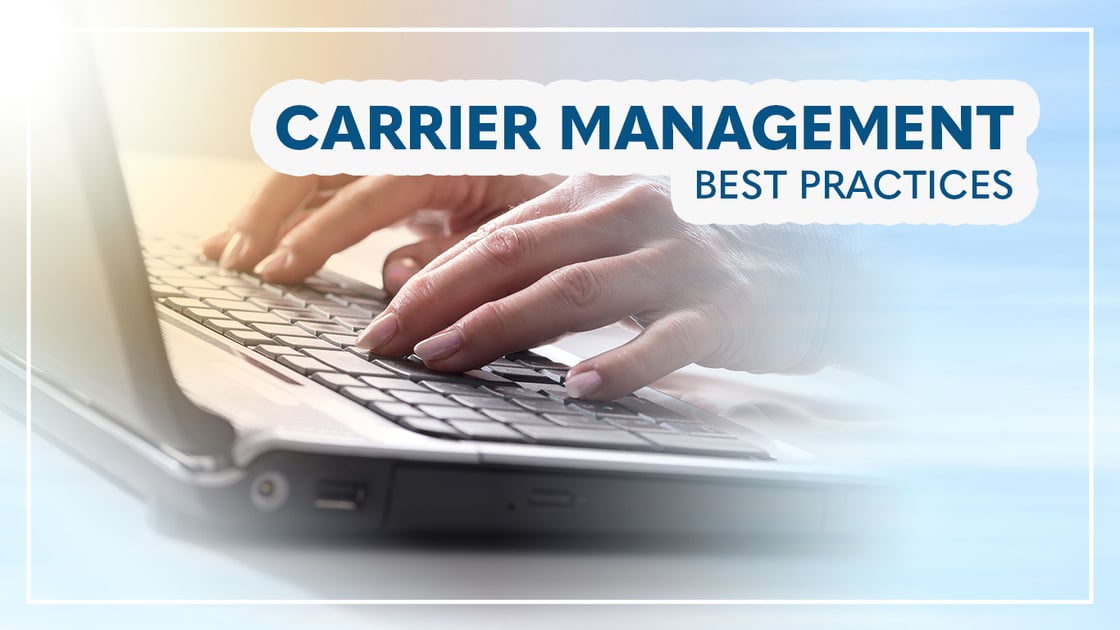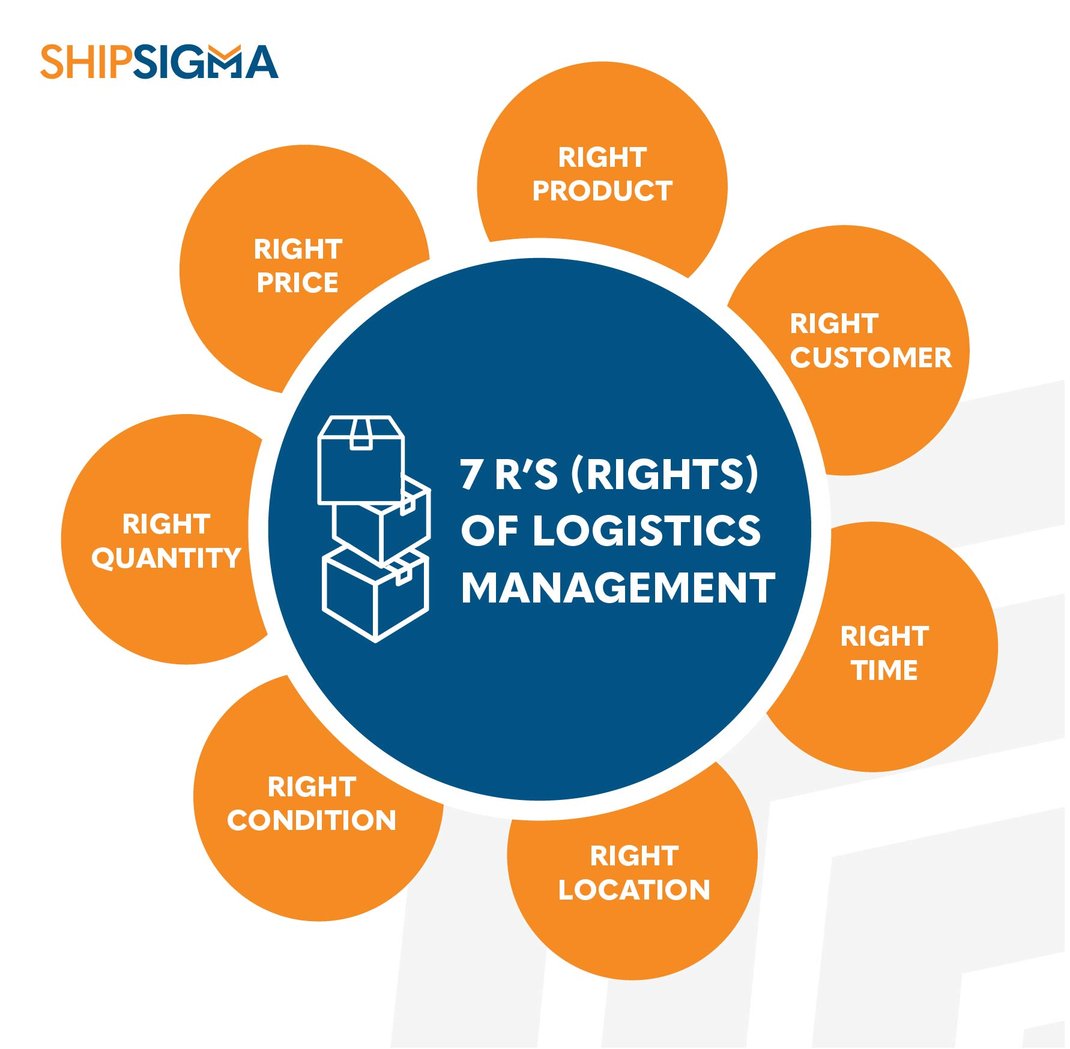Carrier Management | Best Practices
September 13, 2022 •Deyman Doolittle

Carrier management, an extension of transportation management systems (TMS), is designed to give shippers significant advantages in the industry and supply chain. While some aspects of carrier management require a more manual approach, most can be handled through a carrier management system (CMS) with the right software. Investing in good software gives businesses more access to competitive reports and predictive analyses for things like demand and fuel shortages. A proper CMS is designed to help companies navigate contract compliance to ensure carriers are meeting the expectations set in the carrier contract negotiation. As CMS platforms continue to grow, develop, and become an industry norm, it may be hard to keep up with the ever-changing trends and capabilities. In this blog, we’ll walk through the best practices for carrier management and logistics management alike.
What is Carrier Management?
Carrier management in transportation is essential to shippers becoming more efficient and making (or saving) more money. It provides insight, tracking, and improved access to data through carrier management services, systems, and software. It allows for more visibility, confidence, and control into a carrier’s actual costs and overall logistics through carrier scorecards, claims management, rate management, and more.
What Are The Types Of Carriers In Logistics?
By definition, a carrier is “a person or company that undertakes the professional conveyance of goods or people.” They can do this by land, water, and air. In logistics, there are three types of carriers that manage conveyance – common, contract, and private.
- Common Carrier: Transports goods or people from one location to another without high volume contracts or specialty supplies. This can include trucking firms, shipping firms, airlines, bus lines, and rail services.
- Contract Carrier: Trucking or shipping company that transports goods or people from one location to another for specific companies under terms from an agreed upon contract. They also offer specialized expertise in services including delivering medical supplies and transporting gases.
- Private Carrier: Private carriers are companies that own the vehicle(s) they use to transport their own goods or services. They are not for hire.

How Do You Evaluate Carrier Performance?
Carrier performance can be tracked and evaluated in a variety of ways including contract compliance and a carrier performance scorecard.
What is contract compliance?
Contract compliance is a strategy that ensures all contract parties (carrier and shipper) are meeting and matching the expectations legally set by the mutually signed contract.
Contract management software can help automate this process by tracking and monitoring the contracts created within the platform. Using software also removes the risk of human error.
What is a carrier performance scorecard?
Carrier performance scorecards outline how a carrier performed over a period of time. They provide a way to objectively analyze and compare carriers through KPIs. Scorecards are used to track and evaluate carrier attributes on both a qualitative and quantitative level and give businesses visibility into carrier performance beyond what a company can see at face value. Use scorecards to track delivery timeliness, invoice management, damaged shipments, billing accuracy, responsiveness, and more.
Logistics Management Practices
Logistics management focuses on finding effective and efficient ways to move resources or products from ideation to completion and from completion to customer. The latter half of that is where carrier management comes into play. Carrier management, specifically in regards to contract compliance and logistics transportation. The former prioritizes that the agreed upon expectations are being met, and the latter focuses on getting from point a to point b (i.e speed and fuel) in hopes of reducing cost and increasing customer happiness.
What are the 7 Rs of logistics management?
- Right Product: It is imperative to know the current market of your product and future liability. This allows you to forecast demand ensuring businesses can always deliver the right product, on time, every time.
- Right Customer: Focus on the long-term customers. The more positive an experience a customer has, the more likely they are to refer new business in return.
- Right Time: Make sure deliveries are on time, every time. Use CMS and TMS software to analyze and predict traffic patterns and typical delays to more accurately forecast customer delivery dates.
- Right Location: Location, Location, Location. Building and maintaining regional connections gives businesses the ability to fulfill and deliver orders more quickly. Logistics management software can also help companies track the location of trucks and the accuracy of delivery, helping to ensure products get to the right location, on time, every time.
- Right Condition: Guarantee the quality of your product. Take care to store, handle, and pack the goods to ensure they arrive intact regardless of issues that could arise during transport.
- Right Quantity: Use predictive software to avoid backorders, stockouts, and overstock. Track supply and demand patterns to prevent any stock issues, again ensuring delivery of the right product, at the right time, every time.
- Right Price: Use software to run market data and establish competitive prices further allowing you to account for supply and demand fluctuations.

Manage Carriers Successfully with ShipSigma
We offer a variety of solutions to your shipping needs. Our parcel invoice auditing platform is designed to automatically file claims and process refunds. Our tech-driven carrier contract negotiations are powered by data modeling and simulation that let you know your savings before you get to the negotiation table. Once a contract is signed, we will help you track and manage compliance, holding the carrier accountable, and our ongoing shipping insights and analytics offers weekly detailed reporting based on over $1B in live market data. Contact us today to see what ShipSigma can do for you.

